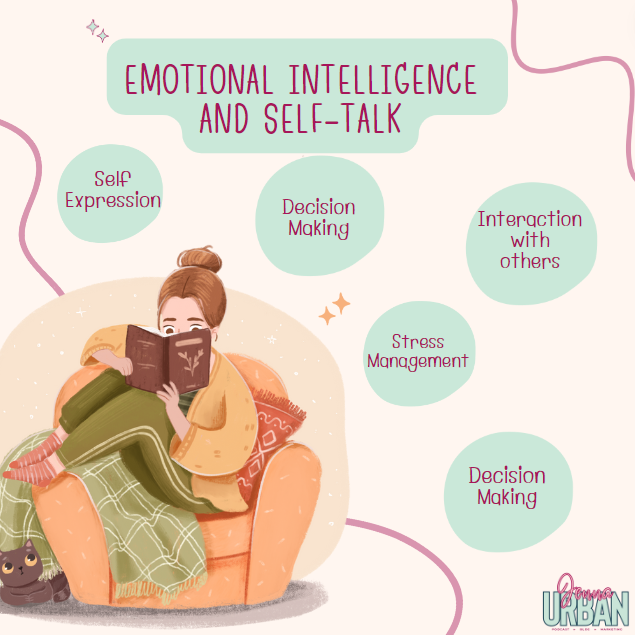What have you asked yourself or told yourself today that you probably wouldn’t even say to your best friend? We often find ourselves caught in a cycle of telling negative stories to ourselves about what we should and shouldn’t do or why certain things happen to us. This cycle can be harmful, as I discovered during a recent conversation with Dr. Andrea DiMattia on our Sole Sisters Podcast. Dr. DiMattia introduced me to the concept of emotional intelligence, which was a new term for me, but it encompasses so much about self-awareness and self-care.

Reflecting on my younger self, I realize how often I would speak negatively to myself, either talking myself out of pursuing something challenging or doubting my abilities. As a former athlete, I practiced positive self-talk regularly, whether it was standing on the foul line and telling myself I would make the next 10 shots or dealing with the aftermath of missing a shot and falling into a rabbit hole of self-doubt. Now, as a mother, I find myself guiding my children through similar experiences, helping them avoid the same pitfalls I once faced.
Our conversation with Dr. DiMattia highlighted the importance of the language we use with ourselves and the need to give ourselves more encouragement and recognition for our accomplishments. Jen Gottlieb suggests in her book, Be Seen, to create a “wins list”—a compilation of all the good things I’ve done and moments when I felt confident and proud of myself. Having this list on hand, whether physically or in a digital app, can help lift my spirits and counteract negative self-talk.
The discussion with Dr. DiMattia was eye-opening, bringing greater awareness to the stories I tell myself and the thoughts I harbor. She shared insights on how to harness emotional intelligence through meditation and self-check-ins. It’s about asking ourselves if we’d speak to others the same way we speak to ourselves, and if not, challenging ourselves to change our internal dialogue.
During our podcast, we had a lighthearted conversation about not being invited to social events. We laughed about how, years ago, seeing a picture of our friends at dinner might have upset us. Over time, we may have wanted an invitation but had no intention of going. Now, we simply know we wouldn’t have gone and have learned to talk ourselves out of feeling left out.
As we raise our children to adopt this same mindset, it’s unclear if this shift comes with knowledge, age, or maturity. Either way, I certainly wouldn’t want to go back and revisit those feelings.
For more insights and practical tips on how to start changing the stories you tell yourself, be sure to check out this week’s episode of the Sole Sisters Podcast with Dr. Andrea DiMattia. Let’s begin the journey towards a healthier, more positive relationship with ourselves.



Leave a Reply